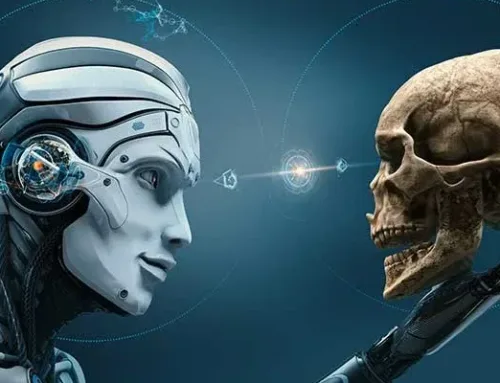Idleness goes meritocratic: It is not just the aristocracy who can be wastrels today – William Hogarth© Provided by The Telegraph
We are too stupid to see the Dark Ages are back
February 19, 2024
By Tim Stanley
Reprinted from The Telegraph
This is a column about work, but I’m going to start with religion (atheists, bear with).
A Telegraph analysis reveals that Church of England attendance has fallen by about 20 per cent since Covid. Some of that will be old folks dying off; some of it, people losing the habit. But it’s also an illustration of how we respond to cultural cues. By closing churches in the middle of the “Greatest Crisis Since the War”, Christian leaders sent the message that collective worship isn’t essential – and if it didn’t matter then, why would it matter now?
The lesson of lockdown was that nothing – not your religion, your relationships, education or career – matters more than your health. Therefore, it’s no surprise that today, despite almost one million vacancies, more than nine million of us of working age are economically inactive, including two and a half million on a sickie.
The state told us we could stay at home and be paid to do it, that any cost will be covered by the future taxpayer. What mug would choose to get a job?!
There are very good reasons not to work. A lot of modern employment is insecure and badly paid. The failure to invest in state social care has compelled many to look after relatives.
But while I’m sure the incoming Labour government has countless policies to fix these problems (tumbleweed blows across the page), what they’ll really struggle with is the changing shape of work – the rise of the click-based, content creating “non-job” – and the cultural perception that much of what we do is simply a waste of time.
Britons once built ships. Now we work in HR and events management. I’m convinced that one reason why we adore the NHS is that it remains a rare locus of expertise and hard work, where people do something that matters.
Yet even the doctors are on strike. This is the Dropout Generation. If we’re not getting what we want, we walk away – when we can be bothered.
Academics have identified a curious phenomenon called quiet quitting, whereby employees stay in their job, they just do less of it, having neither the will to climb the ladder nor the energy to hop off.
This is demonstrable – U.K. workers have lost 4.5 working days a year since COVID – and the term is being creatively applied to relationships (where the precarious nature of online dating reflects the gig economy for work).
Britons are having less sex, marrying later – if at all – and putting off babies for good, causing populations to shrink. The replacement rate is circa 2.1 babies per woman; in South Korea it’s 0.78. The silver lining of civilisational collapse is we might finally see the end of K-pop.
Once upon a time, the key unit in society was the family. Today it is the individual. The only principle we can agree matters is choice, though with the death of religion and philosophy, the range of choices that we can imagine has narrowed drastically, as culture and faith have been replaced by holiday photos and video games.
I’m with the philosopher Alasdair MacIntyre: we live in the new Dark Ages, we’re just too illiterate to realise how dumb we are. Harold Macmillan sat in the trenches reading Aeschylus. Rishi Sunak is a fan of Taylor Swift.
The PM wills Britain to grow, but being the product of a bland corporate culture, cannot explain why we should make the effort. To make the most of one’s talents, perhaps; to contribute, to enjoy responsibility, to pass something on. Prevailing against such optimism, the stuff that gets us out of bed in the morning, the green movement glues roads to a halt and predicts there won’t even be a tomorrow to enjoy.
In a culture saturated with despair, people sigh “I can’t cope!” Pharma companies say “You don’t have to”. And doctors write the prescription.
Rather than ask why capitalism makes people mad or unwell, we invite citizens to drop out of it. Rather than encouraging partners to make a relationship work, we celebrate them for having the “courage to walk away”.
And if you don’t want to brush your own kid’s teeth, says Labour, we’ll do it for them in school (that actually is a policy of theirs). Labour’s abandonment of proper socialism, that is sacrificing today for a better tomorrow, strikes a chord among an electorate that doubts society can remake itself and is gradually giving up on democracy.
Polling suggests young people favour a dictatorship. I don’t think they’re dreaming of Stalin. Rather they regard politics as stupid, occasionally harmful, and they’d prefer it to go away.
In a Deliveroo society where one doesn’t even cook the food one eats – let alone kill it and pluck it – we want stuff to be done for us, fast and anonymously. The ideal dictator would be a hard-working immigrant. “If you’ve enjoyed this military junta, please remember to leave a review.”
My point is this: it’s tempting to see COVID as the Great Disruptor, an event of such unusual force that it shook society to its foundations, and that we only need to pass some bills and kick a few deadbeats off welfare to put things back. But that’s wrong. Lockdown went with the grain, confirming the slow death of vitality in British life, and sending the state in to take the place of the engaged citizen.
We’ve been complaining about our work ethic for years. The baby glut has been a long-time coming. And Christianity has been ebbing away since the 1970s. We have a spiritual crisis, which is to say we’re a society without a motivating spirit.







Leave a Reply, please --- thank you.